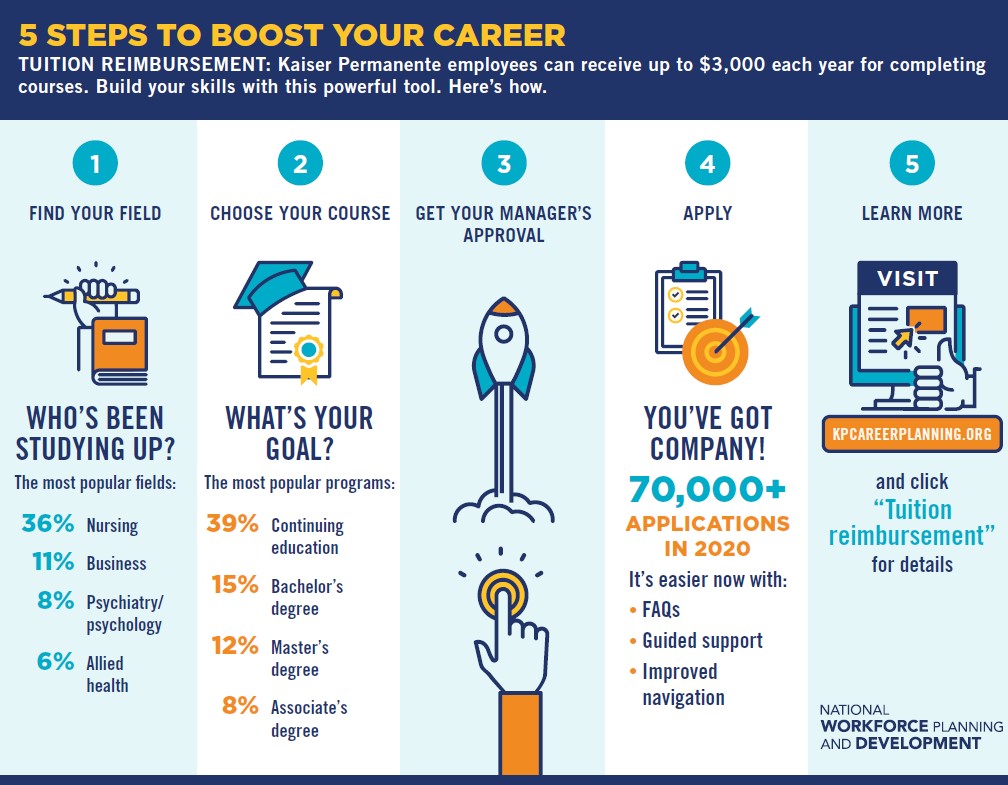Deck
Get tips on the future of workforce learning; view webcast recording for internal use
Even during the COVID-19 pandemic, it's important to make time to learn.
Priscilla Gill and Dawn Nelson of Mayo Clinic emphasized the importance of learning while working during Kaiser Permanente's Future Ready webcast February 25.
"The future of work is about learning," said Gill, director of Workforce Learning. "We all should strive for continuous learning and to be lifelong learners."
"Everyone is some form of a leader," said Nelson, nurse administrator for Education and Professional Development. "Think about how you can grow your personal leadership skills."
Because of the increasing importance of lifelong learning, Labor Management Partnership unions and Kaiser Permanente have negotiated industry-leading resources to assist union members in adapting to change, including tuition reimbursement and education trusts — which had record usage in 2020. Future Ready, hosted by National Workforce Planning and Development, is part of the Workforce of the Future initiative to prepare employees for tomorrow's jobs.
"This is something we've been doing for years and has become even more important with the global pandemic," said Monica Morris, senior director for National Workforce Planning and Development.
3 types of learning
Gill and Nelson agreed, noting the shift this past year to virtual education.
"COVID truly accelerated a lot of our plans," Gill told moderator Peggi Winter, Kaiser Permanente's nurse educaiton leader. "It has indeed moved us at least 5 years into the future."
The webcast, which detailed examples specific to nursing, highlighted learnings that can be applied to many job classifications across Kaiser Permanente.
Mayo Clinic, an integrated health system, emphasizes learning from day one through each career step. This includes learning:
- Experientially on the job
- Socially through learning communities, mentoring and coaching
- Formally with programs, courses, workshops and conferences
"As leaders, we should get to know our staff and understand what their dreams and aspirations are," Gill said. "In doing so, we can help them craft a career plan."
For nurses, learning starts with onboarding, then continues with professional development, a nurse leadership program and nurse leader growth opportunities.
"It is important for staff to be encouraged and guided to find their areas of interest in leadership," Nelson said.
To learn more, view a webcast recording for internal Kaiser Permanente use only.

